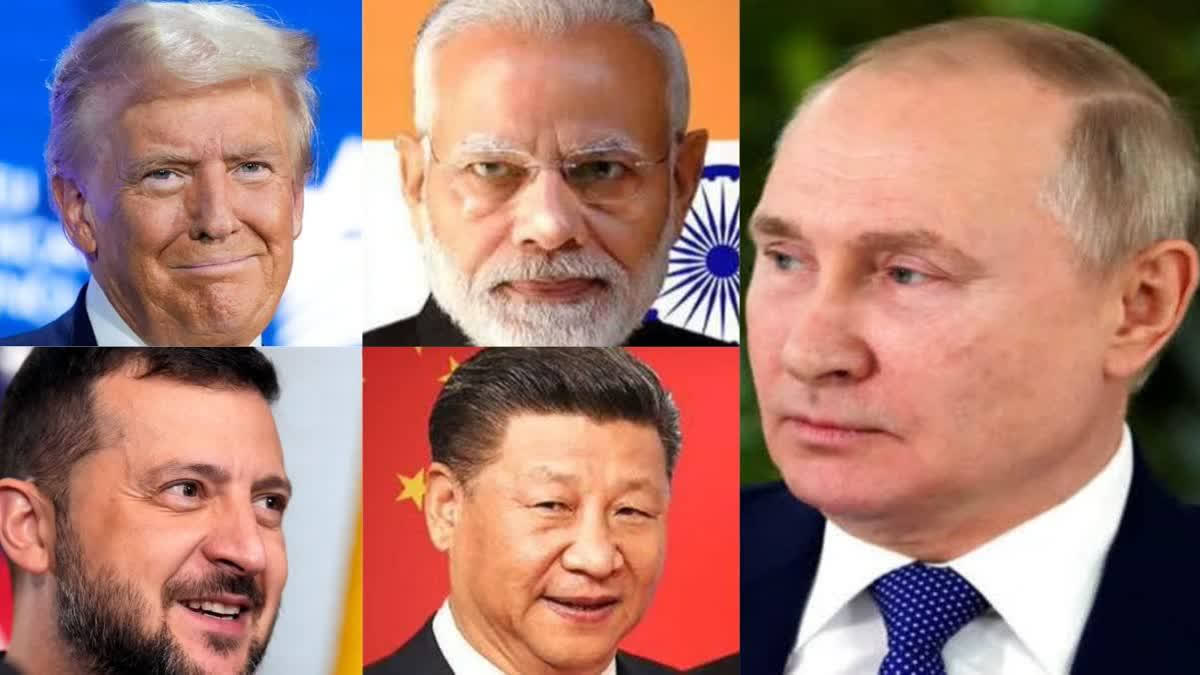New Delhi: In a year when the world is grappling with the devastating fallout of the Israel-Hamas war and the prolonged Russia-Ukraine conflict, India has stepped forward to mediate, bringing a unique perspective to the negotiating table. Drawing from its dual role as a long-standing advocate for the Palestinian cause and a close ally of Israel, as well as its balanced ties between Russia and the West, India is working to bridge divides.
Let’s start with the Russia-Ukraine war first. On February 24, 2022, Russia invaded Ukraine in a major escalation of the Russo-Ukrainian War, which started in 2014. The invasion, the largest and deadliest conflict in Europe since World War II, has caused hundreds of thousands of military casualties and tens of thousands of Ukrainian civilian casualties. As of this year, Russian troops occupy about 20 per cent of Ukraine. From a population of 41 million, about eight million Ukrainians had been internally displaced and more than 8.2 million had fled the country by April 2023, creating Europe's largest refugee crisis since World War II.
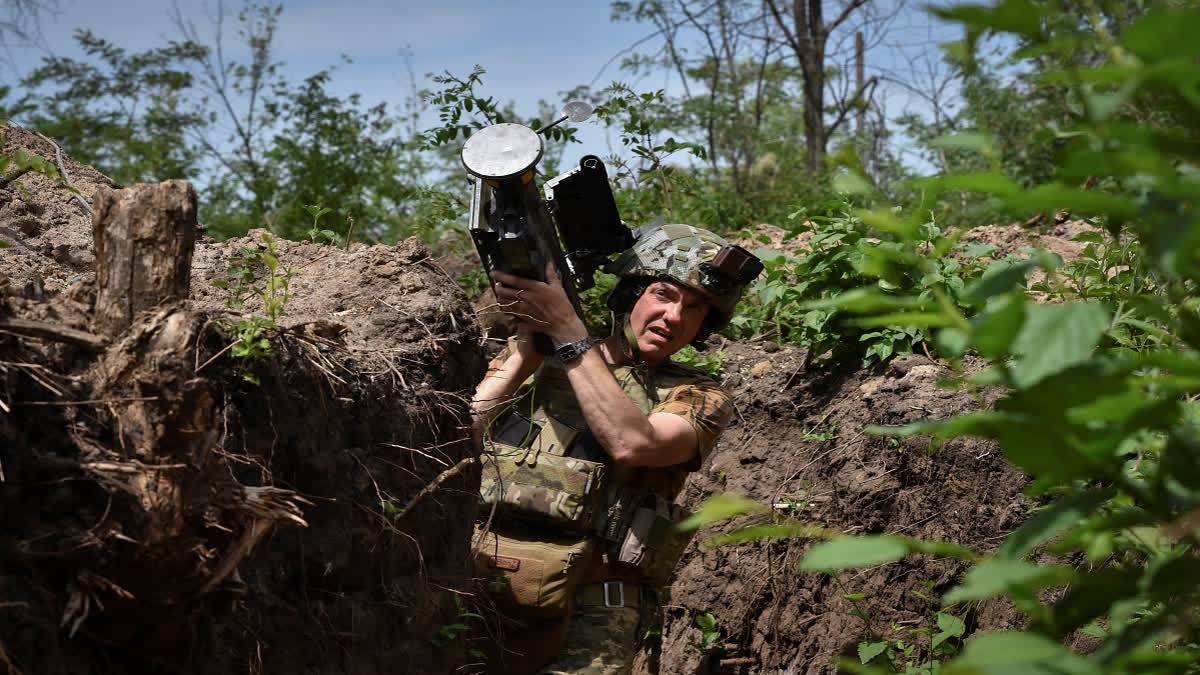
Russia’s invasion of Ukraine was driven by a combination of its strategic goals and concerns over the North Atlantic Treaty Organisation (NATO) expansion, historical narratives, and political calculations by Russian leadership. One of Russia’s primary grievances was NATO’s eastward expansion since the 1990s, which Moscow viewed as a direct threat to its security. Although NATO claimed its expansion was defensive, Russia saw Ukraine’s growing ties with NATO and the European Union as a red line. In the years leading up to the invasion, discussions about Ukraine potentially joining NATO intensified Russia’s anxieties.
With the Russia-Ukraine war entering its third year, India has proactively stepped in this year after Prime Minister Narendra Modi, at the Shanghai Cooperation Organisation (SCO) Summit in Uzbekistan in September 2022, had expressed his view to Russian President Vladimir Putin that “today’s era is not the era of war”.
That India has emerged as an important mediator in resolving the Russia-Ukraine conflict became evident with both Putin and Ukrainian President Volodymyr Zelenskyy putting faith in New Delhi’s initiatives. Modi visited both Russia and Ukraine in July and August this year.
In July, Modi visited Moscow to participate in the Annual Bilateral Summit between India. The Summit was held after a gap of three years due to the COVID-19 pandemic and the Russia-Ukraine conflict.
A joint statement issued following the Summit read: “The sides highlighted the imperative of peaceful resolution of the conflict around Ukraine through dialogue and diplomacy including engagement between both parties. They noted with appreciation relevant proposals of mediation and good offices aimed at peaceful resolution of the conflict in accordance with international law and based on the UN Charter.”
The very next month, on August 23, Modi visited Ukraine and held bilateral talks with President Zelenskyy. Addressing the media in Kyiv following the bilateral summit, External Affairs Minister S Jaishankar said that India has been involved in multiple meetings on the resolution of the Russia-Ukraine conflict.
“There was a diversity of views not just involving India. I think many other countries have also taken part in these meetings and they have their particular views on how to take it forward,” Jaishankar said.
He further stated that “what we heard from the Ukrainian side on how to take this forward and their expectations is understandable”.
“Our view is that any exercise if it has to be productive, will naturally have to involve the other party concerned (meaning Russia),” he said. “It cannot be a one-sided effort.”
According to a joint statement issued following the summit, Modi and Zelenskyy reiterated their readiness for further cooperation in upholding principles of international law, including the UN Charter, such as respect for territorial integrity and sovereignty of states. They agreed on the desirability of closer bilateral dialogue in this regard.
“The Indian side reiterated its principled position and focus on peaceful resolution through dialogue and diplomacy, as a part of which, India has attended the summit on peace in Ukraine, held in Burgenstock, Switzerland, in June 2024,” the statement read. “The Ukrainian side welcomed such participation by India and highlighted the importance of high-level Indian participation in the next Peace Summit. The Ukrainian side conveyed that the Joint Communique on a Peace Framework, adopted at the Summit on Peace in Ukraine, could serve as a basis for further efforts to promote just peace based on dialogue, diplomacy, and international law.”
Following his historic visits to Russia and Ukraine, Modi held telephonic conversations with both Putin and US President Joe Biden during the course of which he shared his insights from his interactions in Kyiv.
After the conversation between Modi and Putin, the External Affairs Ministry issued a statement saying that the two leaders exchanged views on the ongoing Russia-Ukraine conflict.
“The Prime Minister shared insights from his recent visit to Ukraine,” the statement reads. “He underlined the importance of dialogue and diplomacy as well as sincere and practical engagement between all stakeholders to achieve an abiding and peaceful resolution of the conflict.”
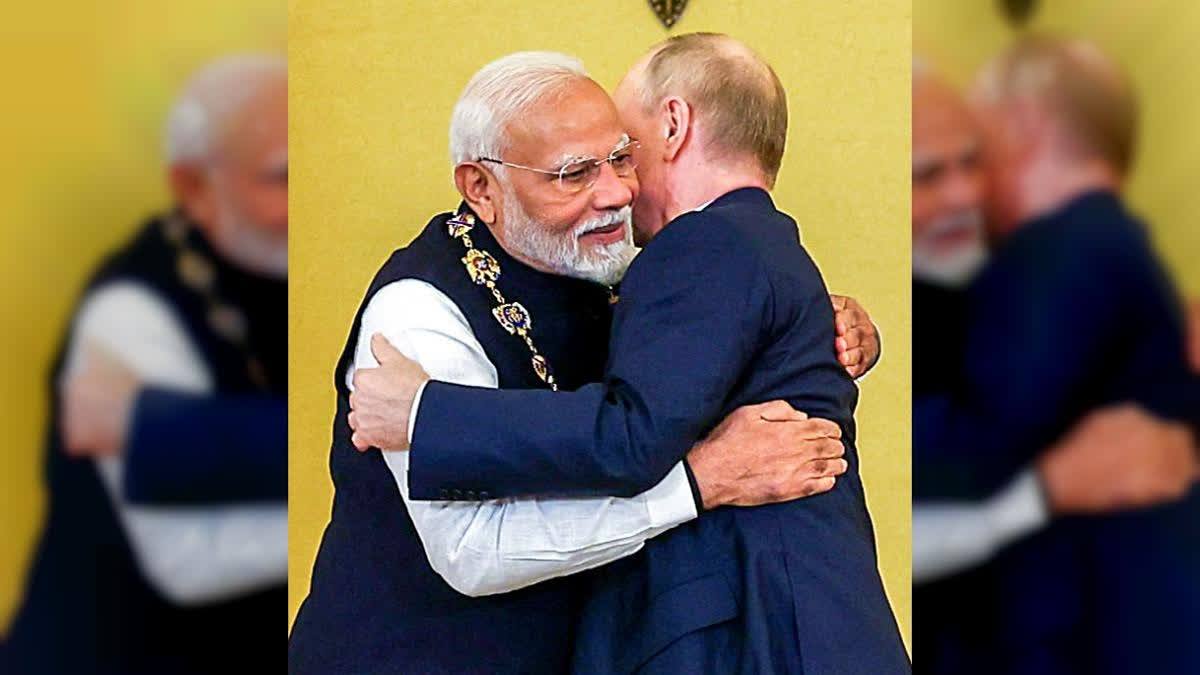
According to a statement issued by the Kremlin, Modi informed Putin about his visit to Kyiv and stressed his commitment to bringing about a settlement for Ukraine by political and diplomatic means.
“Vladimir Putin shared his principled assessment of the destructive policies of the Kyiv authorities and their Western patrons, and went on to highlight Russia’s approaches to resolving this conflict,” the statement read. Following this, Modi spoke with Biden. The External Affairs Ministry then stated that the two leaders had a detailed exchange of views on several regional and global issues.
“While discussing the situation in Ukraine, the Prime Minister briefed President Biden on his recent visit to Ukraine,” a separate statement issued by the External Affairs Ministry read. “He reiterated India’s consistent position in favour of dialogue and diplomacy and expressed full support for early return of peace and stability.”
According to a statement issued by the White House following the conversation, Biden commended Modi for his historic visit to Ukraine, the first by an Indian Prime Minister in decades, and for his message of peace and ongoing humanitarian support for Ukraine, including its energy sector.
“The leaders affirmed their continued support for a peaceful resolution of the conflict in accordance with international law, based on the UN Charter,” the statement further read.
Modi again met with Biden in September this year when the latter hosted the Quad Summit in his hometown Wilmington, Delaware. The Indian Prime Minister personally apprised the US President of India’s mediatory role in the Russia-Ukraine conflict. That same month, Modi and Zelenskyy held another bilateral meeting on the sidelines of the UN General Assembly meeting in New York.
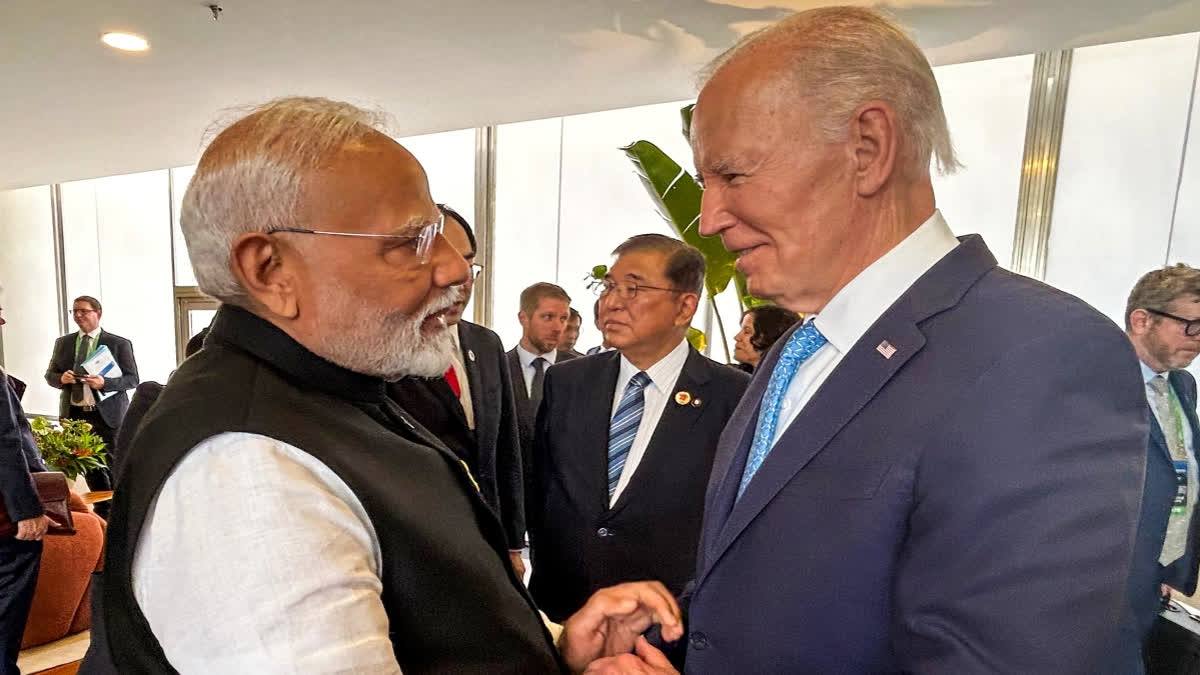
“Met President @ZelenskyyUa in New York. We are committed to implementing the outcomes of my visit to Ukraine last month to strengthen bilateral relations. Reiterated India’s support for early resolution of the conflict in Ukraine and restoration of peace and stability,” Modi posted on his X social media handle.
Modi then again held a bilateral meeting with Putin on the sidelines of the BRICS (Brazil, Russia, India, China, South Africa) Summit in the Russian city of Kazan in October. During the meeting, Modi said that India supports the restoration of peace and stability as soon as possible.
“Our efforts prioritise humanity. India is ready to provide all possible assistance in the upcoming period,” Modi said. Amidst the Russia-Ukraine conflict, the war between Israel and the Palestinian outfit Hamas broke out in October last year after the latter attacked the Jewish nation and took over 1,000 Israelis as hostages. The Israeli retaliation since then has claimed nearly 45,000 Palestinian lives so far.
India’s involvement in mediating the Israel-Hamas conflict in Gaza highlights its evolving role as a significant player in global diplomacy. As a nation with deep ties to both Israel and the Arab world, India has taken a balanced approach, leveraging its influence to promote dialogue and humanitarian solutions.
India has emphasised the importance of minimising civilian casualties and ensuring the delivery of humanitarian aid to Gaza. By working with international organisations such as the UN, India has advocated for ceasefires to enable aid deliveries and medical assistance to the affected populations. India has engaged in backchannel diplomacy with key stakeholders, including Israel, Egypt, Qatar, and the US, to reduce hostilities.
In a written reply to a question in the Lok Sabha on Friday, Minister of State for External Affairs Kirti Vardhan Singh said that India remains concerned about the evolving situation in West Asia and the humanitarian crisis in Gaza.
“Since the beginning of the conflict, India has provided around 70 MT of humanitarian aid, including 16.5 MT of medicines and medical supplies in two tranches,” Singh stated. “It also released $5 million last year and disbursed another $5 million this year to the United Nations Relief and Works Agency for Palestinian refugees in the Near East (UNRWA). Recently, 65 tonnes of medicines were also sent to UNRWA and Palestine Ministry of Health in October and November 2024.”
Singh further stated that India’s policy towards Palestine has been long-standing and includes support for a negotiated two-state solution, and the establishment of a sovereign, independent and viable State of Palestine within secure and recognised borders, living side by side in peace with Israel. India also supports Palestine’s membership of the UN.
While India has strongly condemned the terror attacks on Israel by Hamas in October last year, it has also called for a ceasefire, the release of all hostages and a peaceful resolution of conflict through dialogue and diplomacy.
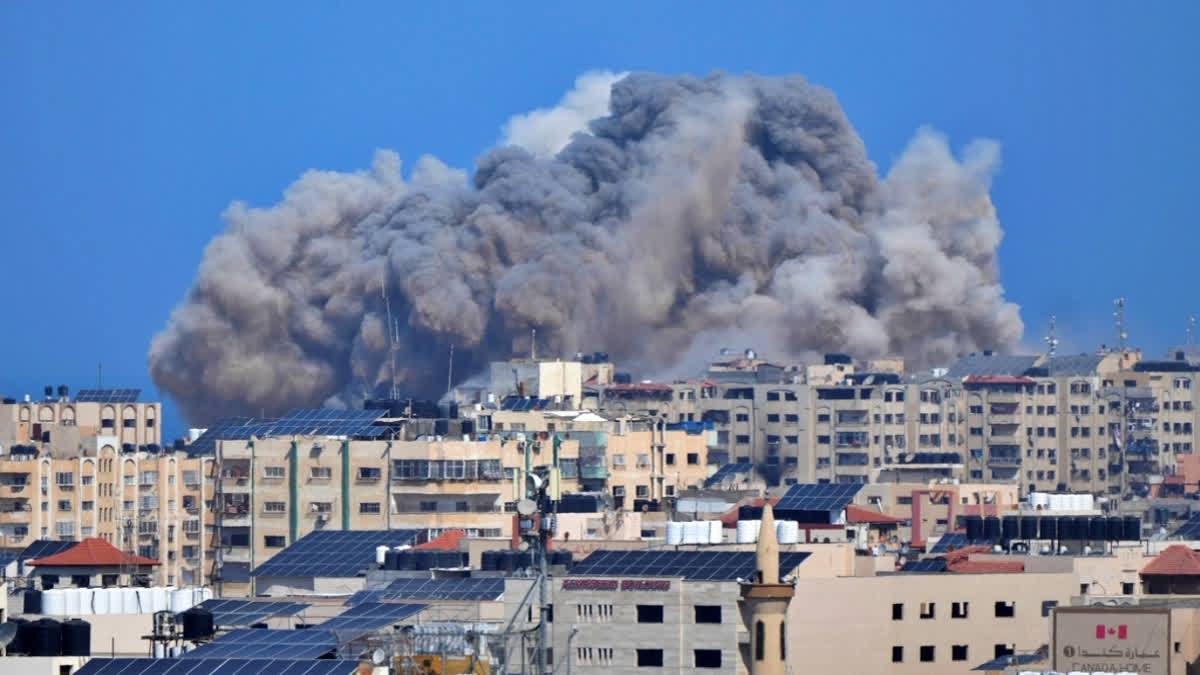
“The Prime Minister and the Minister of External Affairs have spoken to several leaders in the region and across the globe, including the President, Prime Minister and Foreign Minister of Israel and President and Foreign Minister of Palestine,” Singh said. “India’s position has been reiterated in various bilateral and multilateral forums such as UN, BRICS, NAM, Voice of Global South, etc. Prime Minister met the Palestine President on the sidelines of Summit of the Future in New York on September 22, 2024, and called for a ceasefire, the release of hostages and a return to the path of dialogue and diplomacy.”
West Asia is crucial for India’s energy imports. Stability in the region ensures uninterrupted oil and gas supplies, vital for India’s growing economy. Over nine million Indians live and work in the Gulf region. A protracted conflict could jeopardise their safety and disrupt remittance flows, which are a significant contributor to India’s economy.
India’s mediation efforts in the Israel-Hamas war underscore its capacity to engage with complex geopolitical crises. Successfully navigating this situation could bolster India’s standing as a key global mediator.
